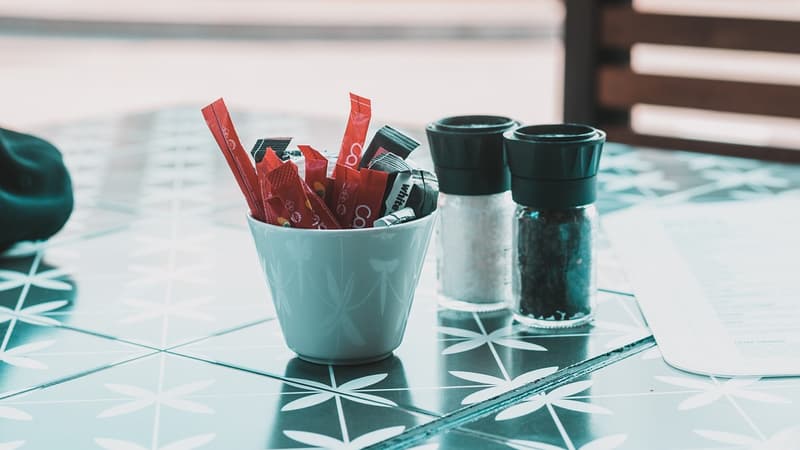Sugar free, but not necessarily safe. The World Health Organization (WHO) announced Friday that aspartame, a very common artificial sweetener, is “possibly” carcinogenic. However, the organization has not changed the acceptable daily intake, established in 1981, 40 g per kilogram, for “safe” consumption.
However, it is difficult to identify this ingredient, often lost in very long lists, hidden on the back of the packaging. Sometimes listed under its full name “aspartame”, the molecule may also slip under the abbreviation “E951”.
The collaborative database “Open foodfacts” makes it possible to identify certain everyday products that contain the additive. It is excessively long, with 16 pages each with a hundred products, that is, 1600 references at least. Note, however, that the products are listed multiple times, such as Coca-Cola Zero, present in all its forms.
Coke Zero, Vichy pills, Dafalgan
The central point of aspartame is its sweetening power. If it is as caloric as traditional sugar, its sweetening power is 200 times higher, so the necessary dose is drastically lower. Result, it is a useful product for products without sugar, light, or used during weight loss.
Therefore, aspartame is everywhere. In the soft drinks section, it is used in Coca-Cola zero (and light), Sprite zero, Pepsi Max, own brand Cola, Fanta zero… In the candy and chewing gum side, it is found in Vichy tablets, certain Chicles, Mentos, Ricola… Yogurts, with certain Actimel, baskets from Yoplait, “dairy desserts” from Elle & Vire.
While it’s not surprising to find this additive in consumer products, it’s more surprising to find it in medicines. According to the Ministry of Health, it is present in 600 treatments. This is for example the case with Dafalgan Codeine, certain calcium capsules or Rhinathiol syrup.
“We do not advise consumers to stop using”
Will manufacturers have to modify their products? Companies will have a choice. “We are not advising companies to recall their products, nor are we advising consumers to stop consuming them completely,” said Dr. Francesco Branca, Director of the WHO Department of Nutrition, Health and Development, during the presentation of two evaluations.
Even without strong restrictions, the food industry is generally sensitive to consumer opinion. When an ingredient falls into disuse, it is not uncommon for the recipe to be adapted, so as not to lose customers. A phenomenon accentuated by applications like Yuka. They make it possible to assess the quality of food products and have already led to changes.
This is particularly the case for Intermarché, which modified 900 recipes and removed 142 potentially harmful additives from its products in 2019.
“Two thirds of the French who use Yuka have decided to abandon a brand or a product for twelve months,” Thierry Cotillard, president of Intermarché, explained to France Inter at the time.
The Nutri-score would have the same type of effects. According to a study by NielsenIQ, the highest-rated products are the ones that sell the fastest, and vice versa. However, the indicator is only indicated in 26% of food products. Sweeteners like aspartame also lower the score.
Source: BFM TV


